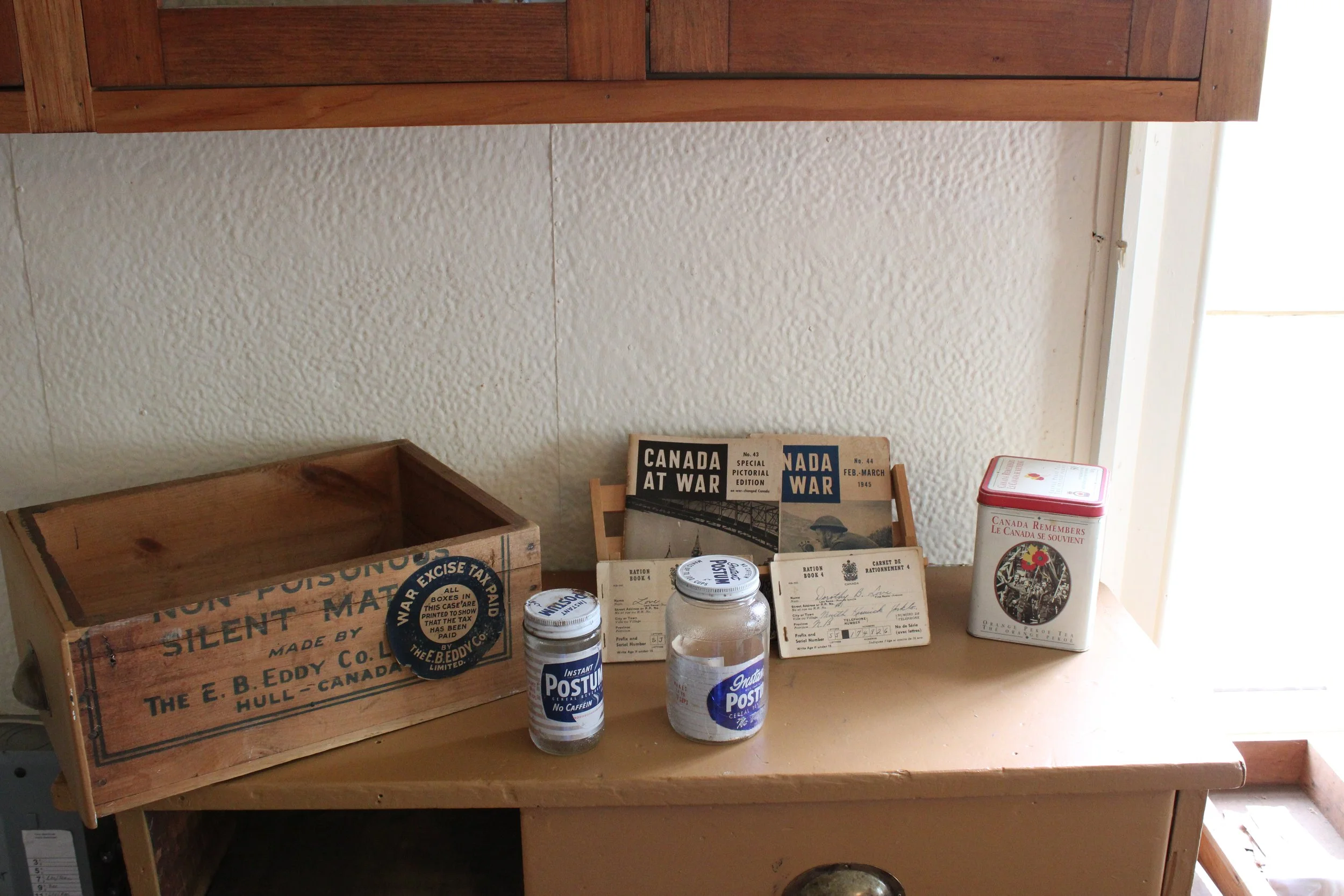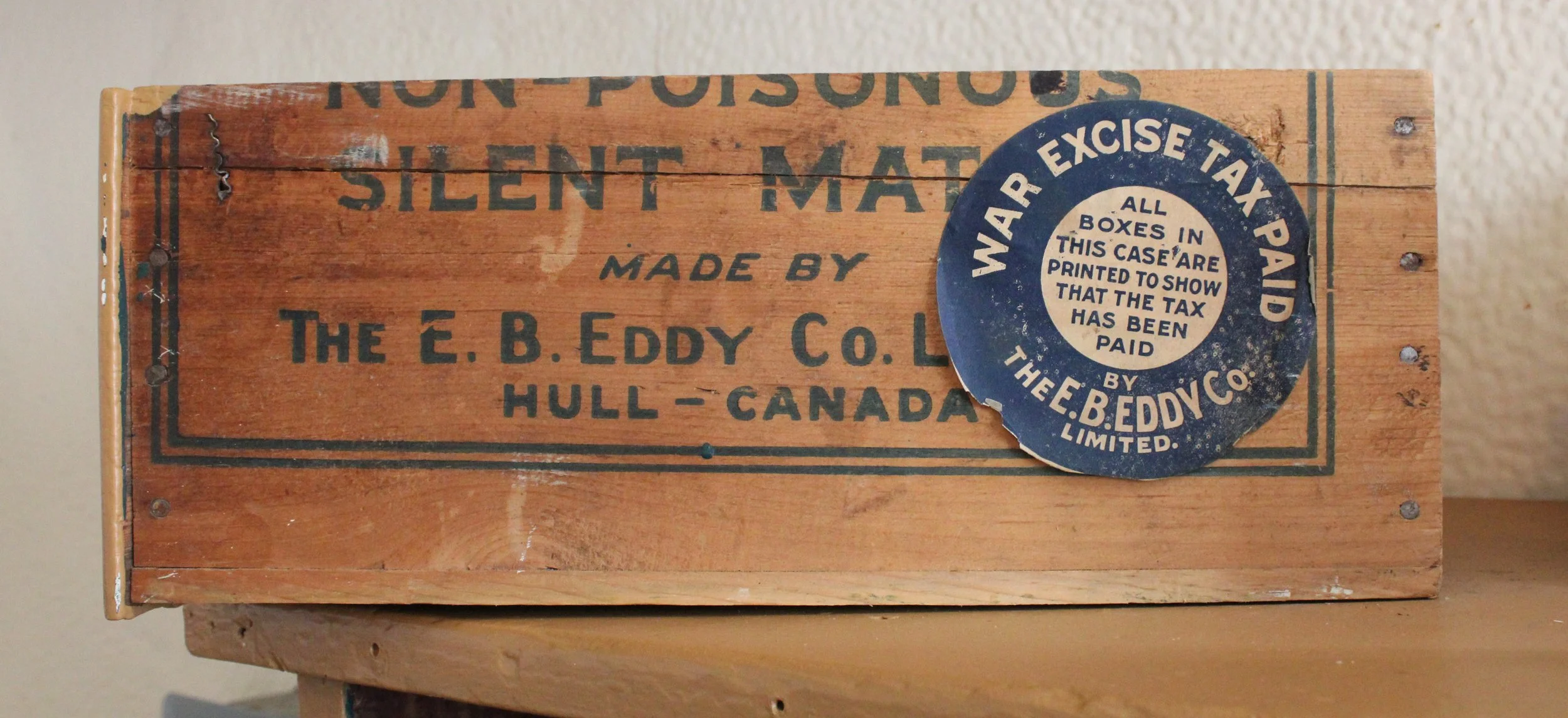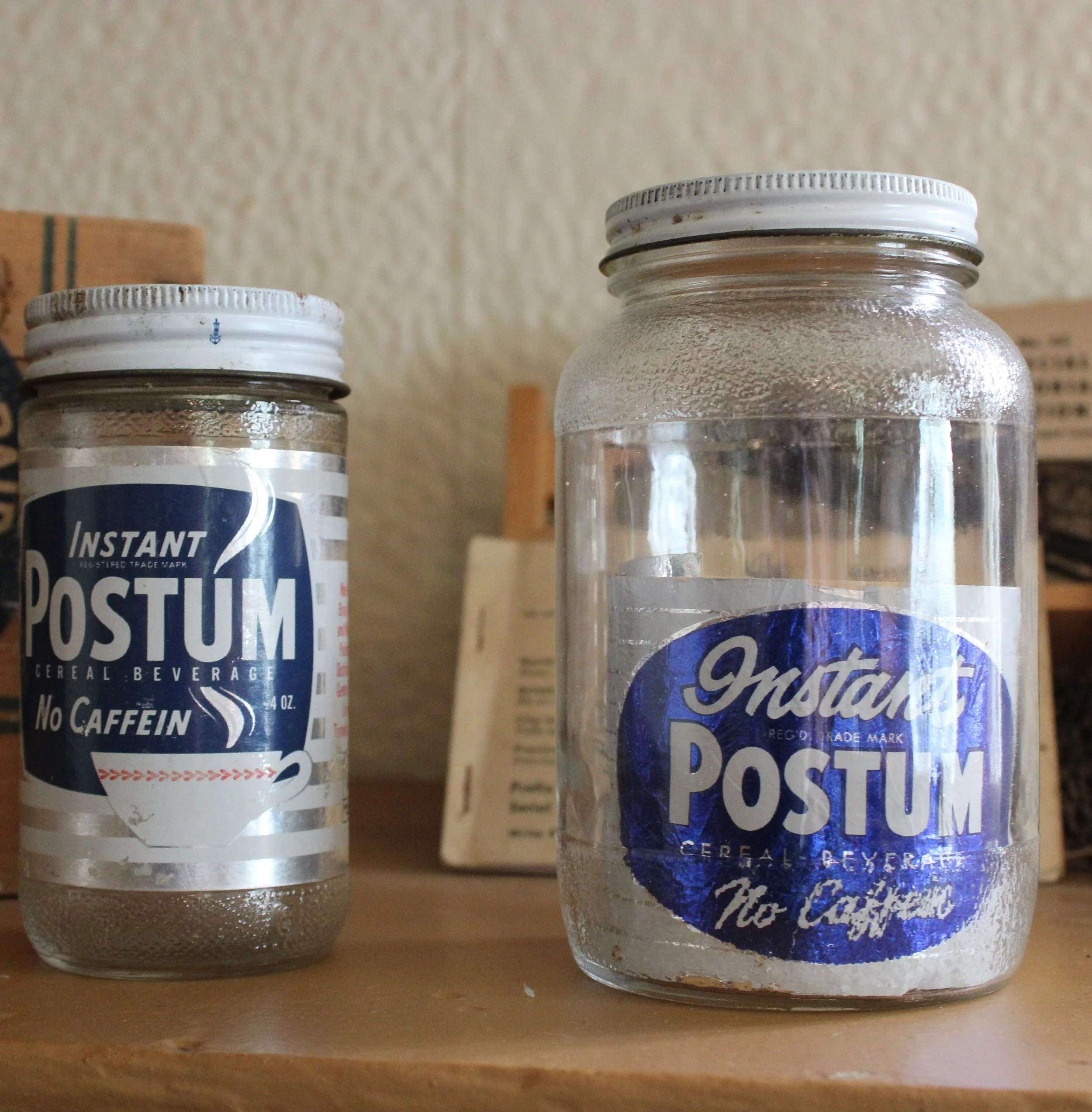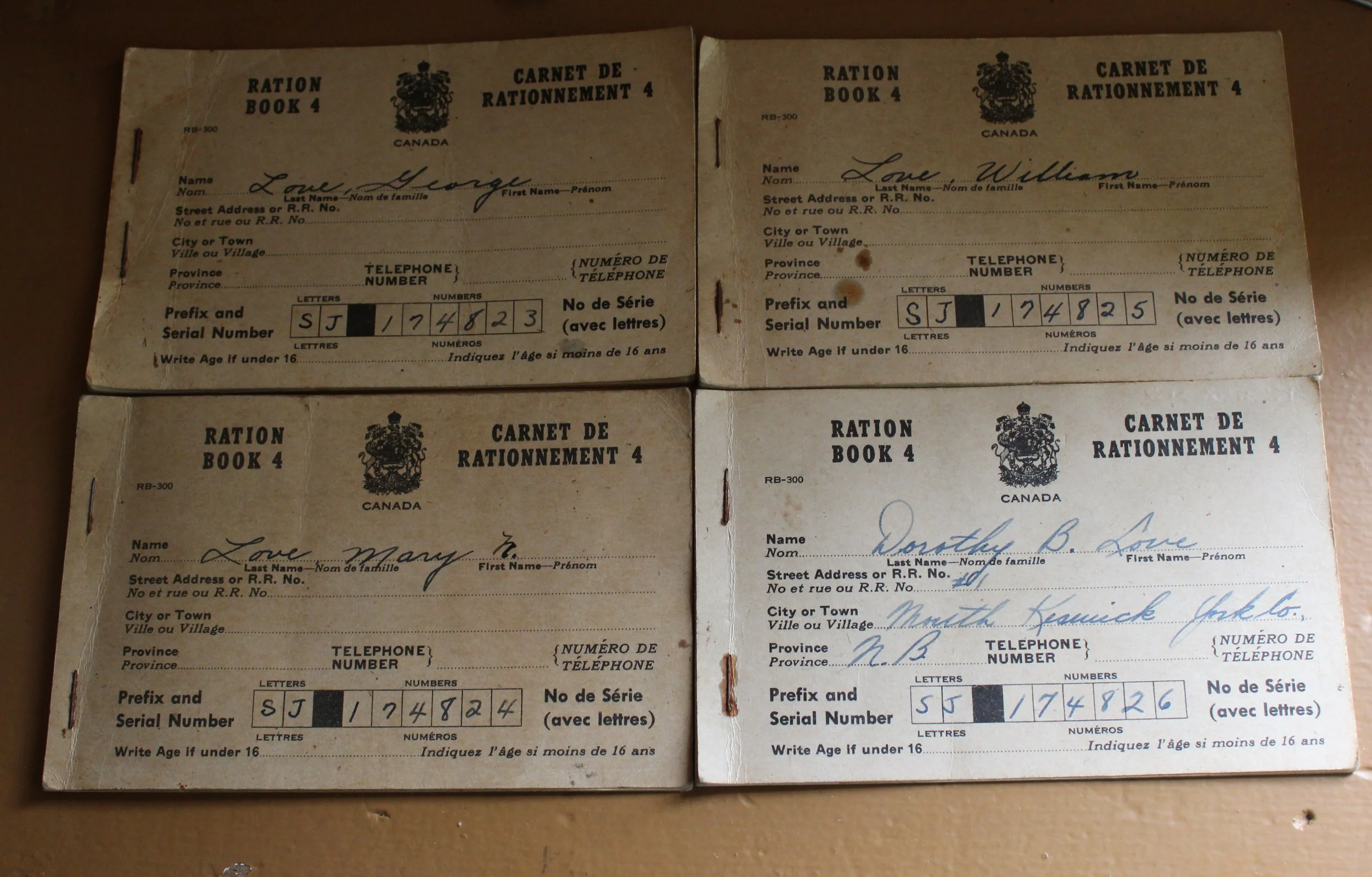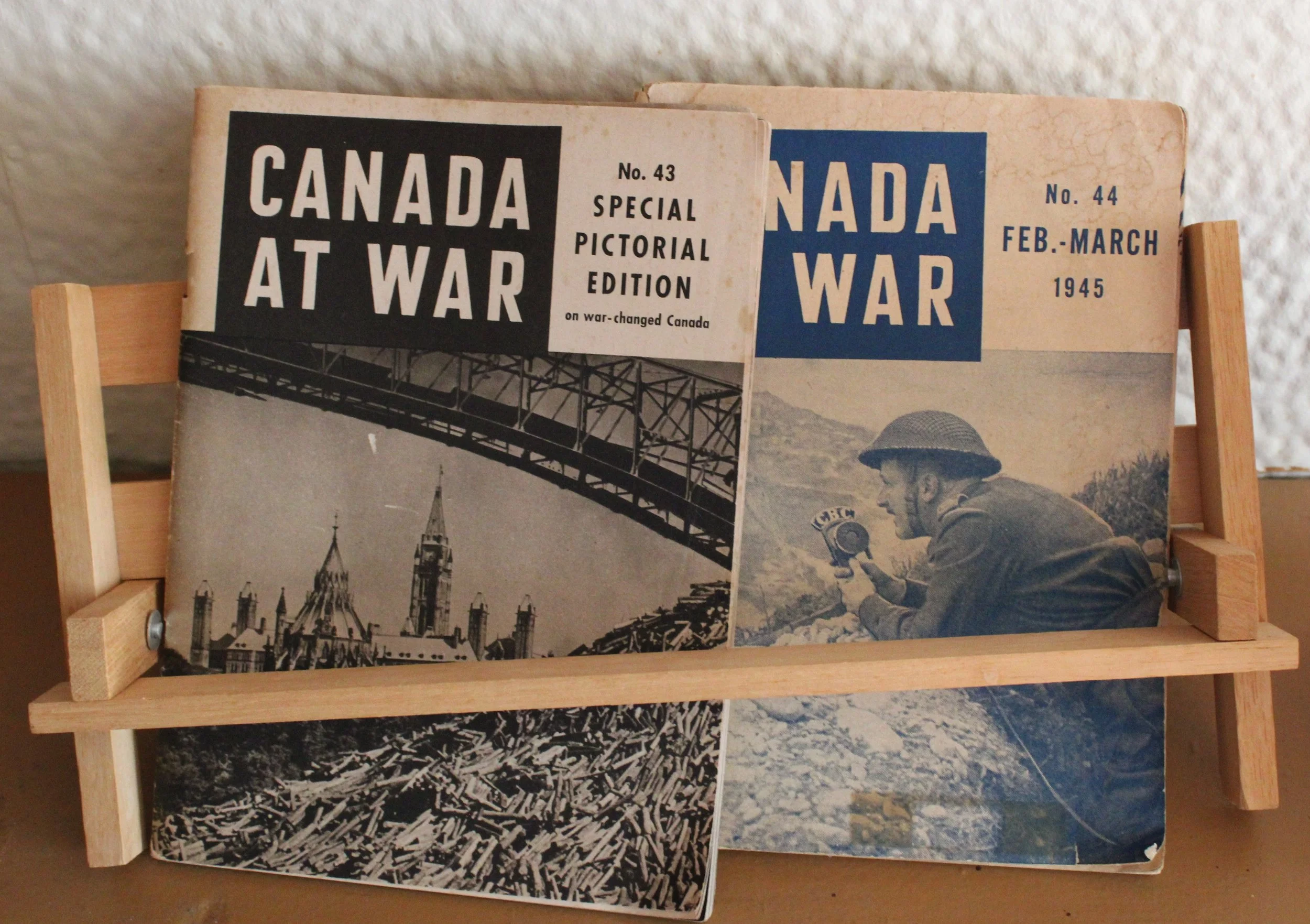World War II Rationing
(Click or tap images to expand)
From 1942-1947, Canadians coast to coast lived with a ration system which saw quantity controls on many goods. The McKeen's Corner Store remained open and up to the task of supplying the local community with all sorts of goods, particularly food, during this period of difficulty.
This is the side of a drawer from the store. It shows the resourcefulness and thriftiness of the store by using a shipping crate to rebuild the drawer. The war exercise tax stamp shown indicates that an additional tax had to be paid on the product by the exporter. The importer, in this case the store owner, would then need to raise the price of the consumer good to recoup losses due to increased importation prices. In this case, since the company is indicated as being Canadian, the tax was likely imposed due to an out of province orgin.
Postum, a ceral drink, was first made as a brewed beverage by C. W. Post in 1895 in Battle Creek, Michigan. An instant mix version was created in 1912. Although generally popular before WWII, with the rationing of coffee and tea, the drink skyrocketed in popularity. Postum accepted its place as a coffee alternative during the war despite originally attempting to distance itself from coffee.
These are ration books belonging to the Love family of Keswick Ridge. George Love (b. 1865) was a farmer in Keswick Ridge who married Emily Jewett (b.1865). They had six kids, Melva Helen (b.1889), James Frederick (b.1891), Alberta Ann (b.1893), Mary Novello (b.1896), Jennie Maud (b.1897), and George William (b. 1905). Mary never married and remained in the household. After George William married Dorothy, they remained in the household of George Love. Thus, the ration books belong to these 4.
These booklets were distributed on the home front to notify Canadians of developments in the war. Both of these booklets were produced in early 1945 after the tide of the war had turned in favour of the Allies.
